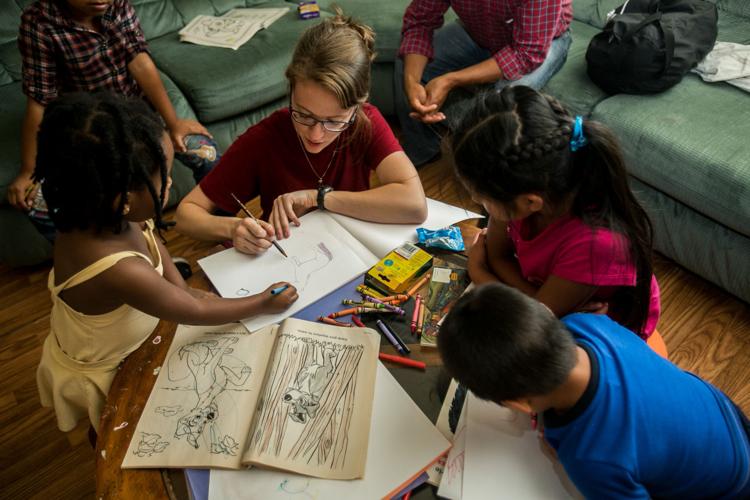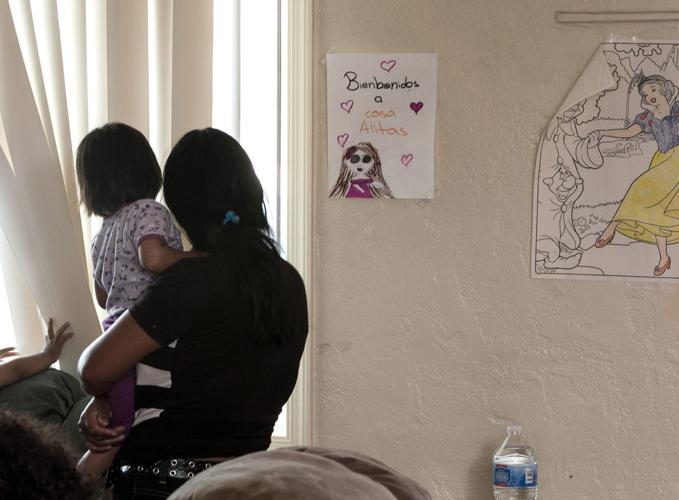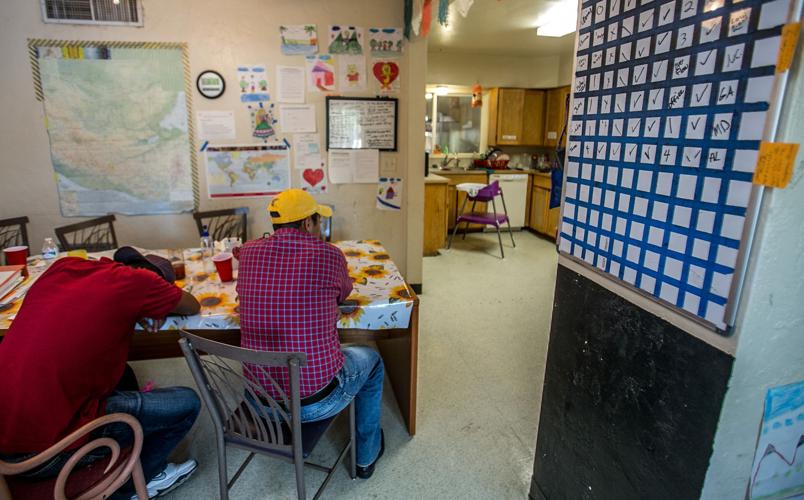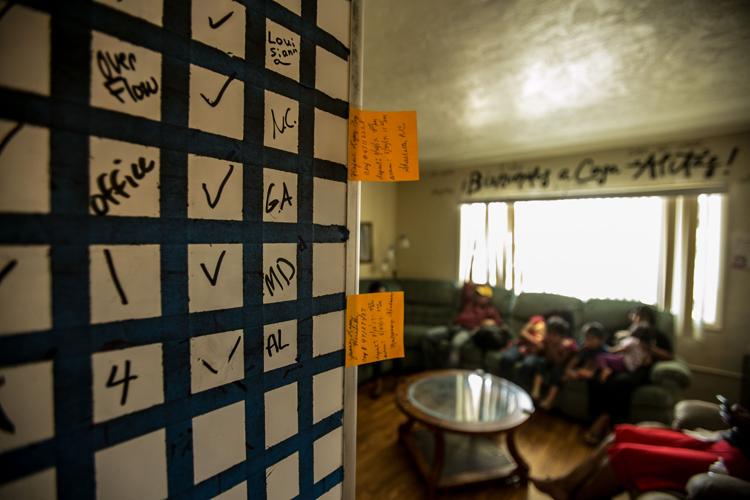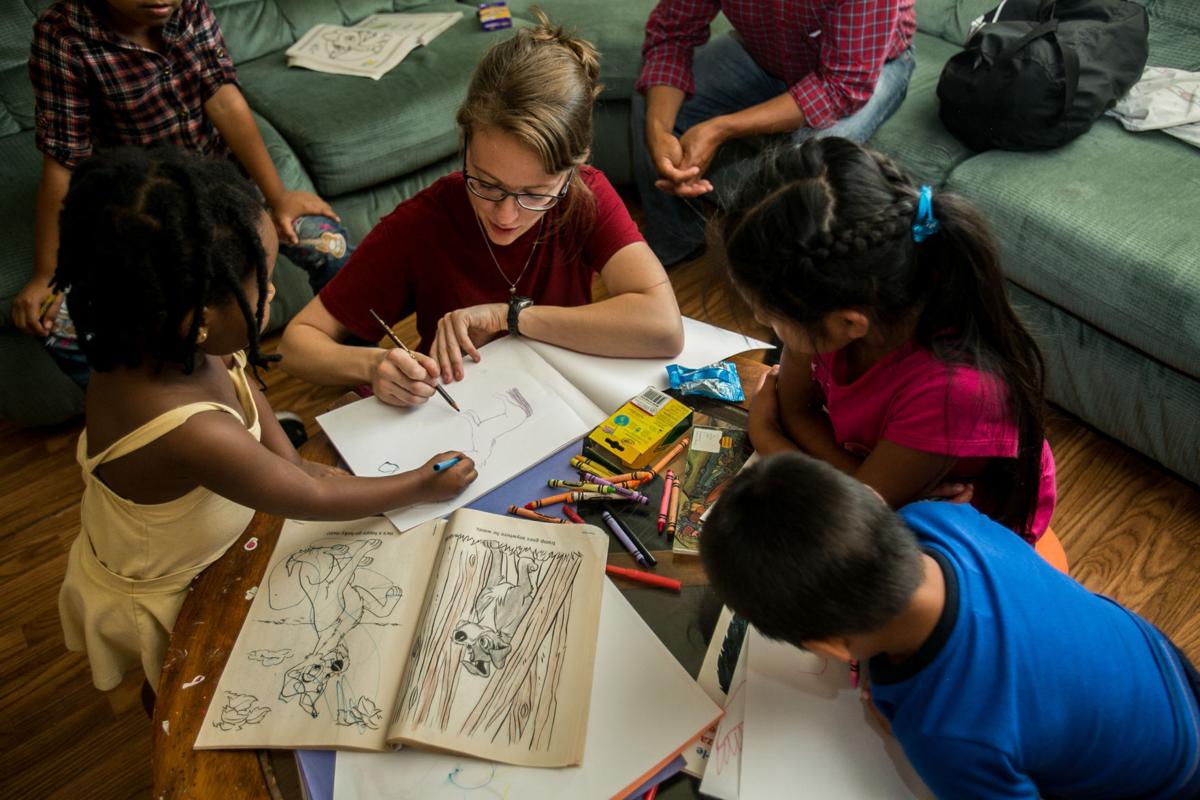This story by Carmen Duarte originally appeared in the Arizona Daily Star on Tuesday, Aug. 29.
Immigrants seeking asylum in the U.S. are stuck at two Tucson shelters as the aftermath of Hurricane Harvey makes bus routes through Texas impassable.
Because flooding is keeping these immigrants from continuing their final journey east to stay with relatives, Tucson shelters are at capacity. The community can help by collecting non-perishable food items and basic hygiene supplies (more info on that below).
These undocumented immigrants, who are seeking political asylum, are processed by the Department of Homeland Security with a notice to appear before an immigration officer at their final destination.

Immigrants seeking political asylum are stranded at Casa Alitas, a home operated by Catholic Community Services. Hurricane Harvey in Texas has delayed their bus travel.
Isabel, a 20-year-old woman from Quiche, Guatemala, is one of those immigrants. She has been at the local shelter, Casa Alitas, with her two sons, ages 4 and 2, since Aug. 25.
“Here I am no longer hungry,” she said.
She said she turned herself in to immigration officials in Nogales, Arizona, Aug. 22 and is seeking political asylum. She said she is on her way to Louisiana where her husband is working.
Her journey began in July after she was threatened several times with extortion by a violent street gang, M-18, that terrorized her neighborhood, she said, adding that she was ordered to put $7,000 into a bank account or she and her children would be harmed.
“I don’t have that kind of money,” she said. She said she traveled with her children by foot, train and bus, begging for food and money along the way. “It was so hot. We suffered. There were days we had no food and my children suffered,” she said through tears.
“We are here now and I feel safe,” said Isabel. “I just want to be with my husband and have a tranquil life. I want peace.”

Immigrant families stranded in Tucson are waiting for bus travel to resume through storm-ravaged Texas. The families, who plan to meet their sponsors in other U.S. cities, are asylum-seekers, approved by the Immigration and Customs Service.
Federal officials process immigrants like Isabel — mostly from Central America, but also from Europe, China, India and Africa — and then drop them off at the shelters. This began three years ago when Border Patrol was inundated with women and their children, and had no proper shelter to hold them, Dora Lopez, a site coordinator for Casa Alitas, said Monday.
Casa Alitas, or House with Little Wings, is located in a north-side neighborhood and operated by Catholic Community Services of the Roman Catholic Diocese of Tucson.
The five-bedroom house with a spacious backyard is providing shelter to 17 people, said Lopez. Additional migrants will be placed in homes of volunteers if needed.
The other shelter, the Inn Project, is run by a faith-based organization located near the University of Arizona. It also was at capacity Monday, providing room for 50 people, said Diego Lopez, also a site coordinator who volunteers at Casa Alitas.
“We are at capacity because people cannot continue their journey into Houston,” said Diego Lopez. The bus routes go through Texas and the final destinations for the migrants include New York, Tennessee, Michigan, North Carolina, Kansas and Alabama, he said.

An overflow crowd of 17 people, who were scheduled to leave today for various locations throughout the south and east U.S., are stranded at Casa Alitas, an initiative of Catholic Community Services, in Tucson, AZ on August 28, 2017. The central Tucson house is a usual stop for asylum seekers who are approved by ICE (Immigration and Customs Service) and traveling by bus to meet their sponsors. Hurricane Harvey has wreaked havoc on bus travel through Texas leaving many travelers stranded.
“Once the water subsides and Greyhound has the capability of travel, the people will be on their way. This will end the bottleneck,” he said. He explained that since June, Casa Alitas had been receiving up to two families a day, but on Friday the overload began with five families.
“It is better that they are here because they have no way to communicate with family members,” said Dora Lopez. “They will need shelter and food.”
That's where you come in. Shelters will take deodorant, toothpaste, shampoo and lotion.
They will also accept non-perishable foods and canned goods. Supplies can be dropped off at Catholic Community Services, 140 W. Speedway Blvd., on weekdays between 8 a.m. and 5 p.m.
Councilman Steve Kozachik is also accepting foods such as soups, juices, fruit and cooked vegetables, or prepackaged meals for the shelters. The items can be dropped off at the Ward 6 office, 3202 E. First St., weekdays between 9 a.m. and 5 p.m.


